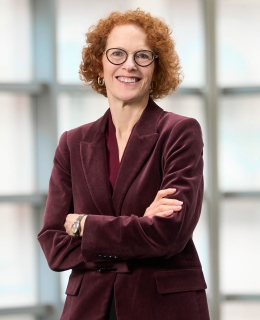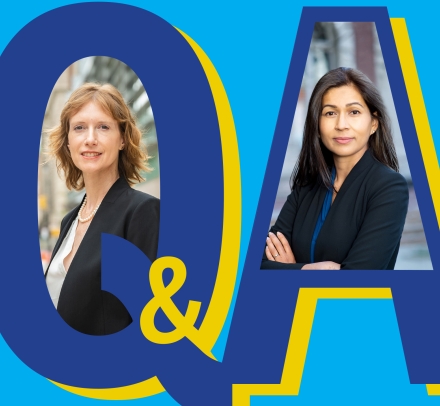We live in the age of the gig economy, globalized labor, and artificial intelligence. Questions surrounding regulations that govern the interaction between an individual and their workplace and even the very definition of “employee” significantly impact society and quality of life. Labor and employment law are part of important conversations on environmental justice, human rights, income inequality, privacy, and public finance policy.
How can the law adapt to and anticipate the evolving nature of employment?
In her book Philosophical Foundations of Labour Law, Gillian Lester, Dean Emerita and Alphonse Fletcher Jr. Professor of Law, notes that work has changed so dramatically that it can be difficult to connect it to traditional concepts on which labor law has been based. Columbia Law School gives students the opportunity to immerse themselves in this rapidly changing field via courses, clinics, research, and other experiential learning opportunities.
Why Columbia Law?
Explore the significant legal and philosophical questions about consent, power, and participation in employment relations.
Investigate debates about the minimum wage, sexual harassment, discrimination, labor unions, pensions, privacy, health, and safety as well as the historical developments that still impact those debates.
Seek answers to new questions facing the world’s workplaces and workforce (for example, is Uber a workplace or technology?), including issues arising from labor movements, labor law, trade, transnational labor rights, immigration, employee rights, and multinational corporations’ social responsibility.
Advocate for the rights of workers on the national and global scale through the Human Rights Clinic and Immigrants’ Rights Clinic.
“Most people don’t have a choice about whether to participate in the market for labor. So making sure that the laws are fit for the conditions of people’s working lives is critically important for ensuring the basic minimum standards of civil society. There can be real vulnerabilities to exploitation given that people need to put bread on the table. So we need to be especially vigilant.”
—Gillian Lester, Dean Emerita and Alphonse Fletcher Jr. Professor of Law and co-editor of Philosophical Foundations of Labour Law









